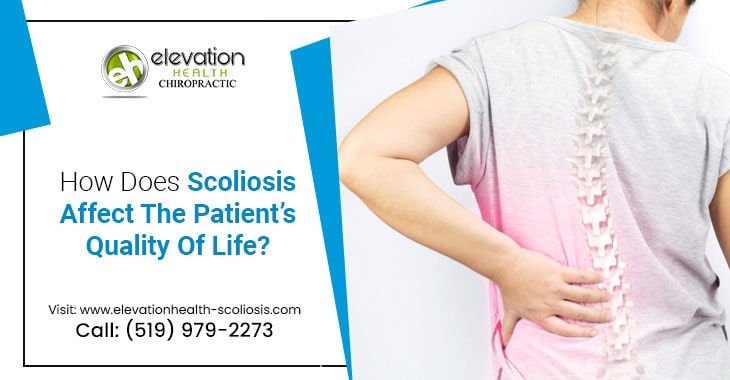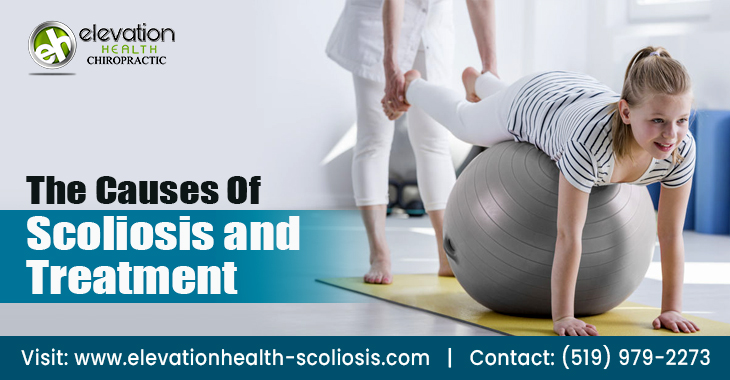
The medical condition known as scoliosis affects the curvature of the spine. It can range from mild to severe and significantly impact a patient’s quality of life. Scoliosis can affect people of all ages, from infants to the elderly. However, it is most commonly diagnosed in children and adolescents between the ages of 10 and 15. Scoliosis often develops during rapid growth, such as puberty, says Dr Brian Nantais of the Nantais Family Chiropractic.
Dr Brian Nantais, with his team from Nantais Family Chiropractic at the Elevation Health clinic, offers Chiropractic Treatment to Scoliosis patients. Chiropractic Adjustments can be a valuable treatment option for scoliosis patients. By reducing pain and discomfort, improving mobility and flexibility, managing symptoms, promoting better posture, and providing a non-invasive and drug-free approach, chiropractic care can help improve the overall quality of life for scoliosis patients.
In this blog, we’ll explore some ways that scoliosis can affect a patient’s quality of life and, thus, why it is necessary to seek treatment:-
One of the most common symptoms of scoliosis is pain and discomfort. As the spine curves, it can cause muscle tension and strain, leading to back, neck, and shoulder pain. In some cases, the pain can be severe enough to interfere with daily activities and make it difficult for patients to sleep at night.
In severe cases of scoliosis, the curvature of the spine can affect lung function and cause breathing difficulties. This can lead to shortness of breath, fatigue, and a decreased ability to exercise or perform physical activities.
Scoliosis can also impact a patient’s self-esteem and body image. The visible curvature of the spine can be a source of embarrassment and shame, especially for young patients. In addition to increasing social isolation, this can harm the quality of life.
Living with scoliosis can also impact a patient’s mental health. The pain and self-esteem issues associated with scoliosis can lead to depression, anxiety, and other mental health problems. This can further decrease a patient’s quality of life and make it difficult to enjoy everyday activities.
As scoliosis progresses, it can also cause mobility limitations. Patients may find it difficult to perform everyday tasks, such as bending down to tie their shoes or reaching for objects on high shelves. This can lead to a decreased sense of independence and quality of life.
In severe cases of scoliosis, the curvature of the spine can also affect the digestive system. The organs in the abdominal area can become compressed, leading to constipation, indigestion, and other digestive problems.
In some cases, scoliosis can also cause nerve damage. As the spine curves, it can pressure the nerves that run along the spinal cord, leading to tingling, numbness, and weakness in the arms and legs. In extreme cases, paralysis can be caused due to nerve damage.
Suppose you or someone you know is living with scoliosis. In that case, talking to Dr Brian Nantais of the Nantais Family Chiropractic about treatment options at the Elevation Health clinic that can help manage symptoms and promote optimal health and wellness is essential.

